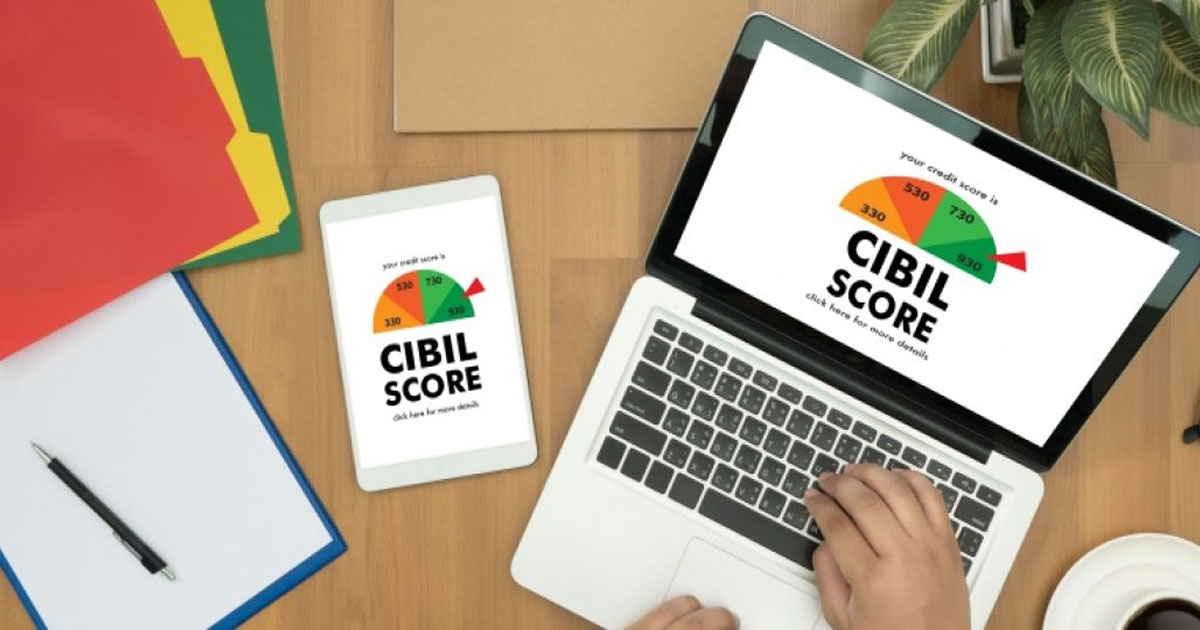CIBIL score is an indicator of all your past credit activities. It is an extremely beneficial tool for lenders to judge an applicant’s repayment ability. Therefore, a good credit score will shift the odds in your favour of getting the loan approved. A good score is mandatory for all major banking and non-banking financial institutions (NBFCs) to sanction unsecured advances like personal or business loans.
You need to understand how a CIBIL score works, before diving head-first into the world of CIBIL score improvement strategies.
What is a CIBIL Score?
It is a summary of all your credit transactions and repayment records summarised and represented with a three-digit number. Person specific financial data is collected by CIBIL using Personal Account Numbers and other identification tools from all the different financial institutions. The collected data is then represented using a three-digit figure, which is called the CIBIL score of a person.
Financial data is used to identify a person’s repayment methods and intentions over the years. Things like unpaid debts or unbalanced spending behaviours mainly contribute to a low credit score.
A CIBIL score of 300 signifies an unsatisfactory financial performance, and 900 is the best score one can have. All major NBFCs require a score of 750 and above to approve any personal loan.
Here are 7 Smart yet Simple Ways to Improve Your Credit Score:
- Take Credit- Keep this in mind that you will not possess a credit score if you’ve never taken a loan. Take that first step towards building a good credit score. A short-term personal loan can help you at the time of an emergency. So if you are ever in need of a personal loan, having a score will help you secure your required funds from a financer.
- Sustainable Use – Use your funds wisely. Under-utilisation will lead to your credit limit being lowered. Both over and under-utilisation of your availed credits will reduce your credit score. Try to be reasonably regular with your monthly transactions. Avoid spending more than 30% of your credit limit on a credit card and you will be on the road to a better credit score.
- Pay Your Older Dues – Clear your unpaid dues. They bring down your score by a lot. Refrain strictly from dragging your dues for too long. Try paying them off as soon as they accrue. Leaving your liabilities unpaid will create a bad impression about your financial intentions, therefore increasing the odds of rejecting your application for a business loan.
- Check Your Score – Keep a regular check on your score and track the changes in the score. This will help you to form a clear idea of what are the factors that contribute to the changes. Once you have a proper plan on how to improve your score, then there remains no worry about it. Your spending habits will improve drastically, thereby increasing chances of getting a Personal Loan from Bajaj Finserv approved.
- Maintain a Versatile Portfolio – Keeping your loan portfolio versatile is also helpful in improving your credit score. Don’t stick to the same type of loan every time you need funds. Take different kinds of loans according to various needs. Example – home loans, personal loans, etc. This will create a diverse credit history which is benefactor when it comes to credit scores.
- Minimize Loan Frequency – It is of utmost importance that you avoid taking too many loans at any given period of time. Try to minimise the frequency of loans you take in a year. Nothing signals bad financial sense to the lenders like taking multiple loans in a year. So, keep the number of credits to a minimum if a good CIBIL score is your goal.
- Scrutiny – If you find any discrepancy or any mistake that has been committed while preparing your CIBIL report, report to the authorities immediately. It shows you have good financial knowledge. If the rightfulness of your grievances gets established, your CIBIL score is bound to improve. It is always a plus point to know the reasons of personal loan rejection and how to avoid them.






No comments:
Post a Comment